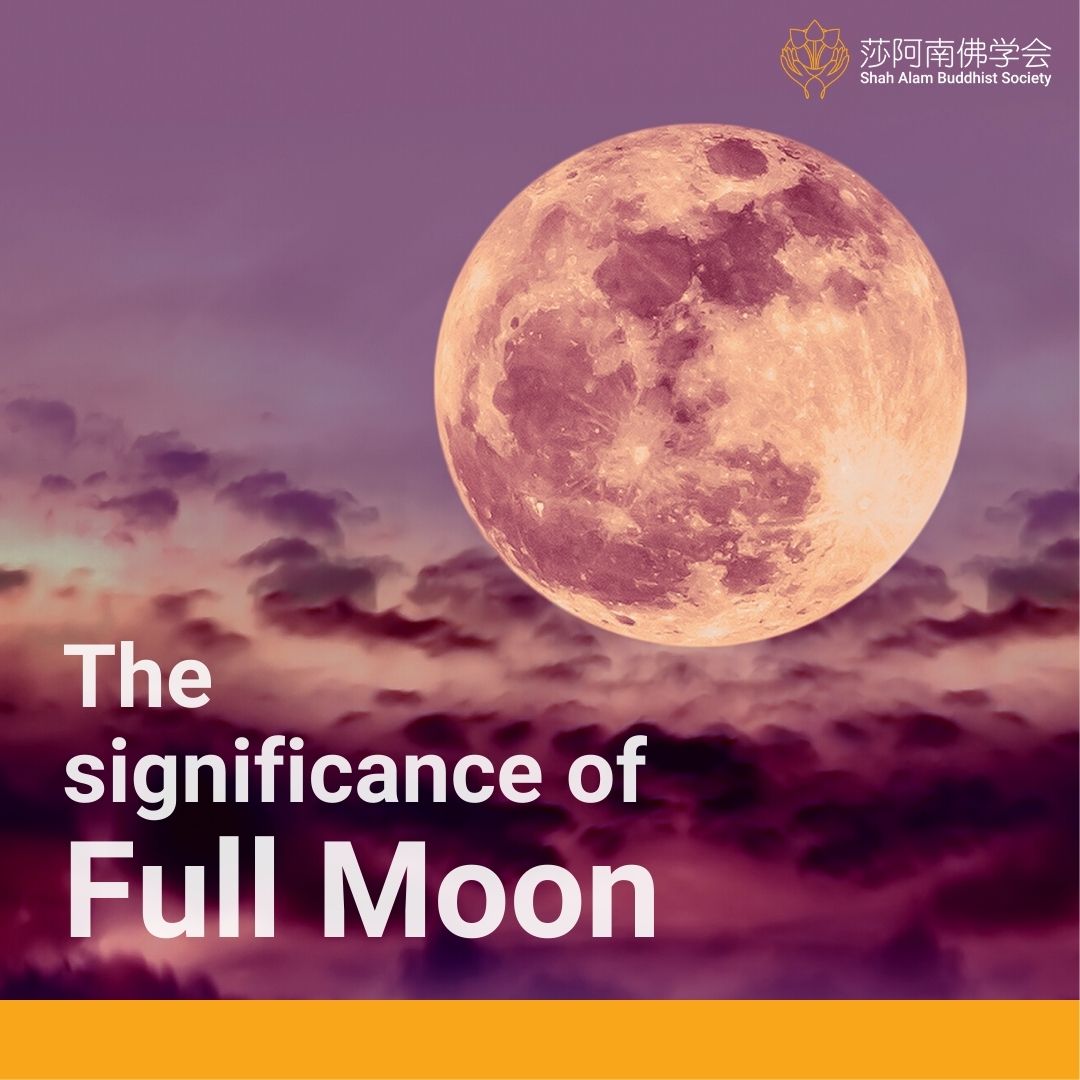The Significance of Full Moon
by Sis Ca-Ryn Lye

From time immemorial, full moons have been associated with odd or insane behaviour. Even English words such as “lunacy” or “lunatic” (derived from the Latin word “lunaticus” which means “moonstruck”) denote insanity or madness. In fact, many cultures in the world hold beliefs that this lunar phenomenon affects human psychology and behaviour.
Is this really true? Does the full moon trigger strange human behaviour?
If you are familiar with Western folklore, you might have heard of terrifying myths about humans transforming into bloodthirsty creatures (such as werewolves and vampires) under the full moonlight.
Although these myths are unlikely to be real, it has been reported that criminal activity is higher during the full moon. A 1976 study which gathered 34,318 criminal offences in a large metropolitan area in the United States of America, found that the rate of offenses such as robbery and assault, rape and offences against family and children increased significantly during the full moon compared to other times. Another study in 2016 suggested that outdoor criminal activity may be higher when there is more moonlight.
Over the years, studies seem to be divided when it comes to the full moon’s effect on human emotions, sleep patterns and mental health. Some findings support this notion that the full moon indeed influences sleep quality, self-harm and mental health; whilst other studies have reported no significant relationship between these factors and the lunar phenomenon.

Image source: https://unsplash.com/photos/RhRu1h2NttE
Nonetheless, there does seem to be a link between lunar cycles and symptoms of certain mental disorders. For example, a recent 2020 study in China which evaluated 13,067 patients in a psychiatric hospital found that schizophrenia patients tend to be easily aggravated during the full moon. In India, it was found in a 2021 study that sentinel events also significantly increased in the psychiatric ward during the full moon and new moon.
What is interesting – in the local context – is that a 2013 Malaysian study on moon phases and stock trading performance reported that investor psychology is influenced by the full moon. The researchers surmised that the full moon can affect investors’ mental and emotional disarray such that it results in poor stock trading performance.
Considering the research findings above, we invite you to experiment it on yourself by practicing mindfulness especially during the full moon. A mindfulness practice would enable you to observe your own experience; and be aware of whether the full moon might have any effect on your personal moods, sleep patterns and behaviour.
Significance of Full Moon in Buddhism
When we speak about the full moon, it is vital that we also highlight its significance in Buddhism.
Full moons are special because of the sacred events which took place in Gautama Buddha’s life. His birth, renunciation, enlightenment and parinibbana (death) all took place under the full moon.
During ancient times in Buddhist countries, full moon days were declared as public holidays for citizens to devote their time towards spiritual development. Such holidays, however, were subsequently switched to Sundays during the colonial period.
Buddhist Full Moon Practices
Full moon practices observed by Buddhists, in present times, is part of Uposatha which involves days of observance in the lunar calendar. The Buddha taught that Uposatha is a day for “the cleansing of the defiled mind through proper technique”. These ritual cleansing days are observed by nuns, monks and laypeople. During the full moon or Uposatha days, it is common for laypeople to engage in practices including:

Image source: https://unsplash.com/photos/aN-zGYlxiCI
These practices can help to cultivate moral conduct (sila), concentration (samadhi) and wisdom (panna) which essentially forms the Noble Eightfold Path. Further, researchers have suggested that a mindfulness practice encompassing the notions of the non-self, impermanence, non-attachment and equanimity, as taught in Buddhist culture, is beneficial to our health and well-being.
As we celebrate the Mid-Autumn Festival during this full moon, we wish you a wonderfully auspicious and bountiful year filled with good health, well-being and wealth. May you and all beings be happy, healthy and peaceful.
—
References
Brahmana, R., Hooy, C.-W., & Ahmad, Z. (2014). Moon phase effect on investor psychology and stock trading performance. International Journal of Social Economics, 41(3), 182–200. https://doi.org/10.1108/ijse-04-2012-0134
Geddes, L. (2019, July 31). The mood-altering power of the Moon. Www.bbc.com. https://www.bbc.com/future/article/20190731-is-the-moon-impacting-your-mood-and-wellbeing
Mittal, A., Nayok, S. B., Munoli, R. N., Praharaj, S. K., & Sharma, P. S. V. N. (2021). Does lunar synodic cycle affect the rates of psychiatric hospitalizations and sentinel events? Chronobiology International, 38(3), 360–366. https://doi.org/10.1080/07420528.2020.1849253
Stanborough, R. J. (2020, September 17). Full Moon Effects: What Research Has Discovered. Healthline. https://www.healthline.com/health/full-moon-effects (Medically reviewed)
Stolzenberg, L., D’Alessio, S. J., & Flexon, J. L. (2016). A Hunter’s Moon: the Effect of Moon Illumination on Outdoor Crime. American Journal of Criminal Justice, 42(1), 188–197. https://doi.org/10.1007/s12103-016-9351-9
Tasso, J., & Miller, E. (1976). The Effects of the Full Moon on Human Behavior. The Journal of Psychology, 93(1), 81–83. https://doi.org/10.1080/00223980.1976.9921376
The Eight Precepts. (n.d.). Buddhist Society of Western Australia. Retrieved September 20, 2021, from https://bswa.org/practices/the-eight-precepts/
Uposatha days. (n.d.). Buddhism for Beginners. Retrieved September 20, 2021, from https://tricycle.org/beginners/buddhism/uposatha-days/
Venerable K. Sri Dhammananda Maha Thera. (n.d.). What Buddhists Believe – The Moon and Religious Observances. Www.budsas.org. Retrieved September 8, 2021, from https://www.budsas.org/ebud/whatbudbeliev/217.htm
Wang, R.-R., Hao, Y., Guo, H., Wang, M.-Q., Han, L., Zheng, R.-Y., He, J., & Wang, Z.-R. (2020). Lunar cycle and psychiatric hospital admissions for schizophrenia: new findings from Henan province, China. Chronobiology International, 37(3), 438–449. https://doi.org/10.1080/07420528.2019.1625054
Xiao, Q., Yue, C., He, W., & Yu, J. (2017). The Mindful Self: A Mindfulness-Enlightened Self-view. Frontiers in Psychology, 8. https://doi.org/10.3389/fpsyg.2017.01752


